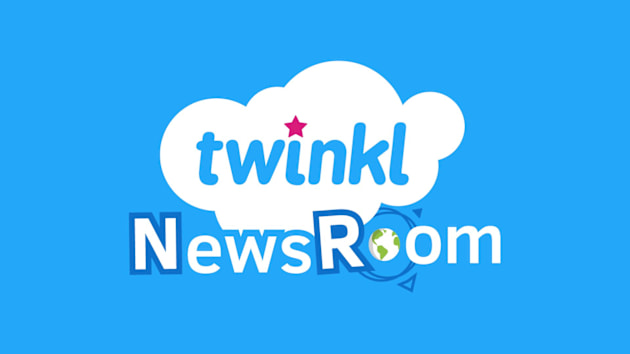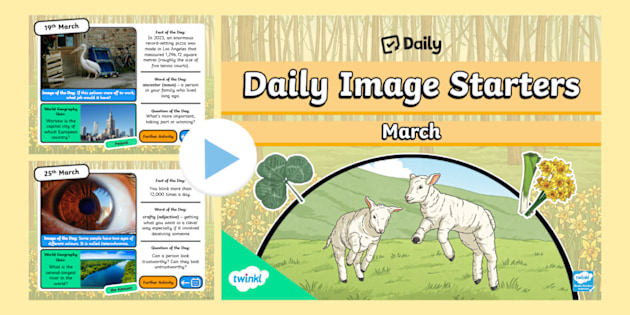


Nuestros reportajes infantiles están pensados para los niños y son una forma perfecta de ayudar a su clase a explorar las noticias con confianza. Cada reportaje incluye una serie de recursos didácticos adaptados al plan de estudios.


Wednesday, 19th March 2025
Thank you for supporting Twinkl NewsRoom. After careful consideration, Twinkl has made the difficult decision to discontinue Twinkl NewsRoom and instead focus on integrating topical issues across a wide range of curriculum-based content lines. Click the button below to access the Twinkl Teaching Topic & Event Resource Calendar.

Saturday, 8th March 2025


Tuesday, 4th March 2025


Monday, 3rd March 2025


Saturday, 1st March 2025


Friday, 28th February 2025


Wednesday, 26th February 2025

Are you looking for a child-friendly way to help your kids connect with the world around them? Here, you can find as many child-friendly news reports for the classroom as you need! News stories and articles are the perfect way to learn about the latest developments and news that is going on around them.NewsRoom helps you to discuss current affairs and the latest news with your class.
At Twinkl, we understand that discussing the latest current events with young people can be challenging. With the rise of social media and the non-stop stream of breaking headlines, students will likely come across information from a wide variety of news sources that they can't understand. This is why we have curated age-appropriate news reports for kids, current event resources, and more to provide a reliable and child-friendly source of current news.
Released every Wednesday in term time, the pack poses an open-ended question in response to an event in the news. The packs are perfect to use to support the teaching of spoken language, citizenship, reading and PSHE. Each of these classroom news stories has been written and designed by our team of experienced teachers, so you can feel assured that your learners will be accessing child-friendly information.
Each weekly pack includes an open-ended question based on a relevant news story to encourage children to discuss, express their opinions, and practice active listening with a partner. The pack consists of a newspaper-style article with reading questions, a PowerPoint for whole-class teaching, an activity sheet for children to write their opinions, and a task sheet for further exploration and writing on the issue.
Click the link to see an example of a Weekly NewsRoom pack: Should Children Be Allowed on Social Media? – NewsRoom Weekly Pack (ages 7-11)
We know you can’t be an expert in everything. That’s why Twinkl NewsRoom is here to support you. Each weekly pack contains background information and glossaries to keep your learners informed on a range of interesting topics.
For more support when using news for kids in your teaching, you may want to see NewsRoom's Guidance , written by experienced teachers. For support with each pack, refer to the lesson plan. This document will include advice on how to make the most of each children's news article.
The Weekly NewsRoom packs can help children develop the national curriculum objectives for key stage 2 pupils in England:
It can be tricky to know which of the latest news for kids to share with your students, some of it may be sensitive or distressing, whilst some may not interest younger students. However, here at Twinkl NewsRoom, we consider discussing the news with your learners can be extremely beneficial. There are many benefits to introducing them to the news. Here are some examples of how reading them aids your child's learning:
<